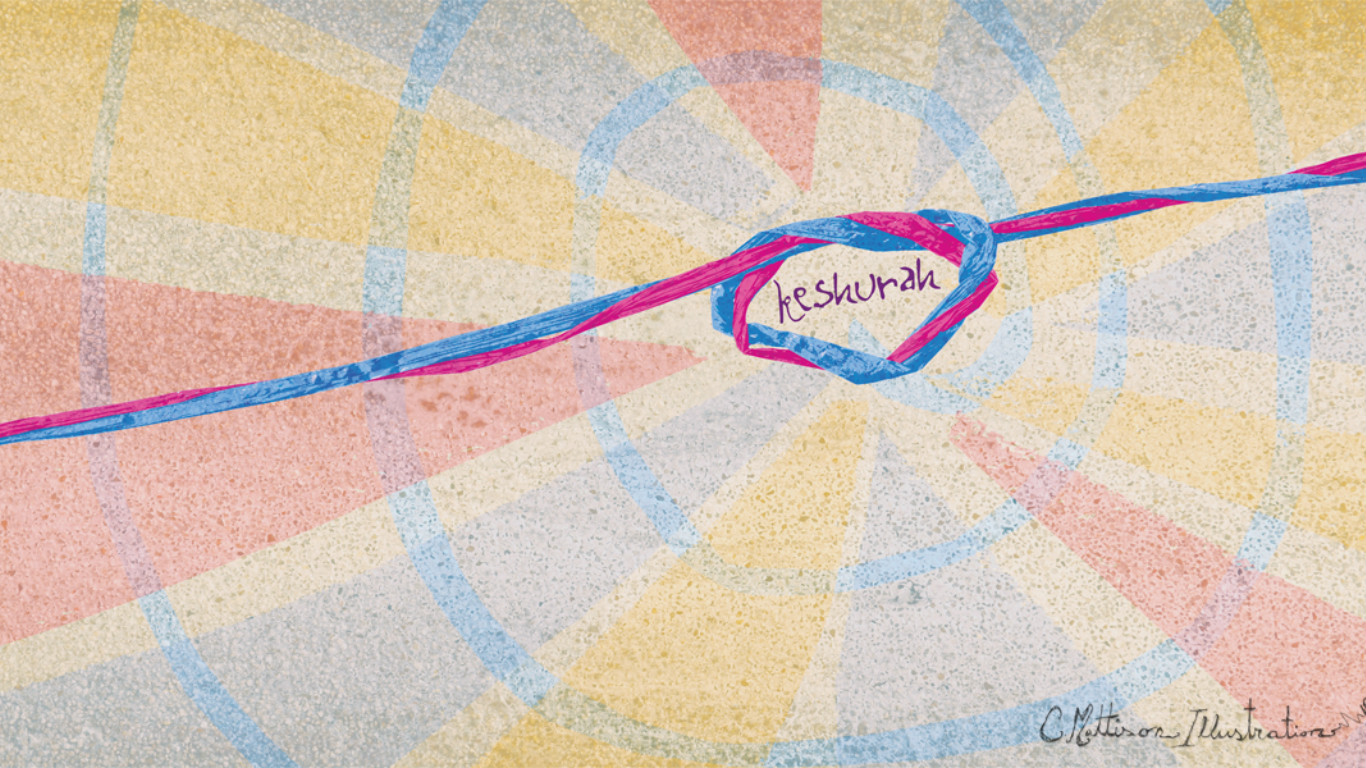Commentary on Parashat Vayigash, Genesis 44:18-47:27
In Parashat Vayigash, we are introduced to Serah bat Asher. Named in the accounting of the members of Jacob’s family who go down to Egypt, the text tells us nothing else about her and she is mentioned only once more in the Torah, in the census of the Israelites in Numbers 26. But from these scant mentions of her, an extensive tradition arose describing her as a memory keeper, a wisdom holder and someone whose longevity was such that she was still alive when the Israelites left Egypt centuries later. This enabled her to make sure that Joseph’s bones did not remain in Egypt, fulfilling his deathbed request to be taken, in death, to the land promised to his ancestors.
Serah is also famous for a midrash that describes how she approaches her grandfather Jacob to let him know that his son Joseph is still alive. After Joseph reveals himself to his brothers and instructs them to come down to Egypt, he urges them not to alarm Jacob who, at this point, is in his elder years and has been grief-stricken since losing Joseph. Her brothers ask her to go to her grandfather and play on the lyre, sharing the news in a gentle manner that would not overwhelm him. As she plays, she says, “Joseph my uncle did not die, he lives and rules over all of the land of Egypt.” As she continues to play, Jacob is heartened as he is enveloped by great joy. He is then better able to hear his sons bearing the same news, accompanied by a large entourage.
Serah’s gentleness in delivering this news is a sharp departure from earlier in Genesis, when the news of Joseph’s apparent death is delivered in a stark and unmediated manner. Jacob then spends the subsequent two decades utterly consumed by this profound loss. Having lost his wife, Rachel, just a few years prior, it is almost too much to bear. Though the Torah states that Jacob’s family tried to comfort him, he refused to be comforted. I sense a bit of judgement in the text, as if all of the love and support should have naturally led to Jacob’s ability to emerge from mourning.
But perhaps Jacob wasn’t in a place to be comforted. Perhaps the all-too-common human desire to paper over, to make things okay and find the silver lining, came to the fore. Perhaps those around him simply could not, or dared not, understand the multi-layered experience he was having. Many of us did not grow up with the emotional skills required to skillfully navigate the raw reality of grief. It is easier to turn away and continue forward as if nothing happened. Better to cap our inner jar of sorrows with an airtight lid than to turn and face the enormity of the pain we carry.
With your help, My Jewish Learning can provide endless opportunities for learning, connection and discovery.
For so many of us, grief feels like this — isolating, raw, unyielding. It can feel impossible to let anyone in. We get caught in a mind spiral of what might happen if we open up or what additional emotional burdens we might have to bear if we seek support from those close to us. What might it have felt like for Jacob to pause and turn towards his own pain with softness and compassion?
Serah’s wisdom, as given over in the midrash, presents us with one possible model for caring for a relative in such a state. While we have no way of knowing what was going through her mind, the midrash permits us to imagine that she was able to find a place of inner stillness. In a destabilizing moment, she was able to gather herself and find a source of great joy and ease by playing on the lyre, and to use that as a vehicle for conveying information she intuited would be shocking to her grandfather. This allowed her to create an atmosphere that avoided overwhelming or alarming him.
Serah’s navigation of this difficult emotional and spiritual terrain gives us guideposts for navigating the emotionally and spiritually complicated dynamics in our own lives. How do we share difficult things? Not by minimizing, papering over or seeking to avoid the destabilizing truth, but by gathering ourselves, finding a place of stillness within, taking a beat or two to prepare ourselves for the encounter and then, from what we today would call a more present or centered place, reveal what needs to be revealed. By so doing, our message can be received with less reactivity and greater openness and ease.
Finally and crucially, Serah established trust with her grandfather by meeting him where he was. Perhaps she, like so many of us, really wished that he had greater emotional fluency and ease. But recognizing that that just wasn’t available, she was able to use her skill and care to meet Jacob where he was spiritually and physically so that he could hear the news and integrate it within himself. We learn in next week’s Torah portion that Jacob lived 17 years in Egypt. One only hopes that those years were filled with blessings from his entire family.
May Serah’s skillfulness and care guide us as we discern the path forward when times of trial arise for us.



